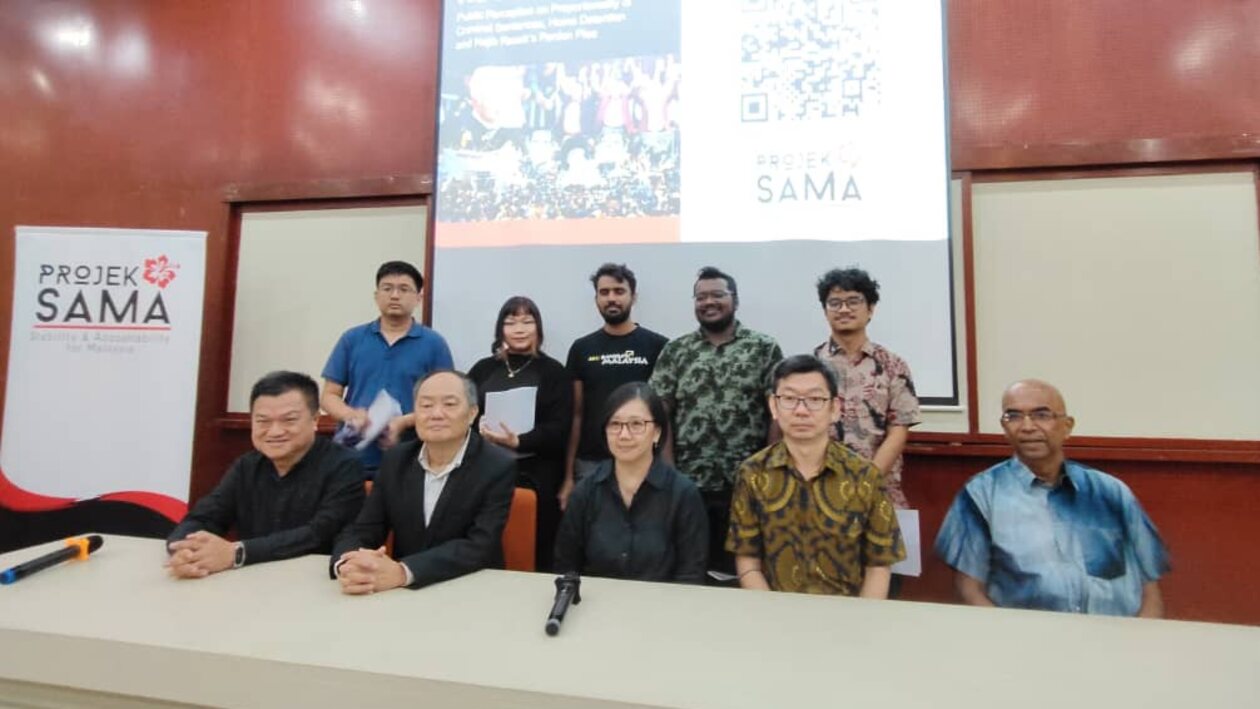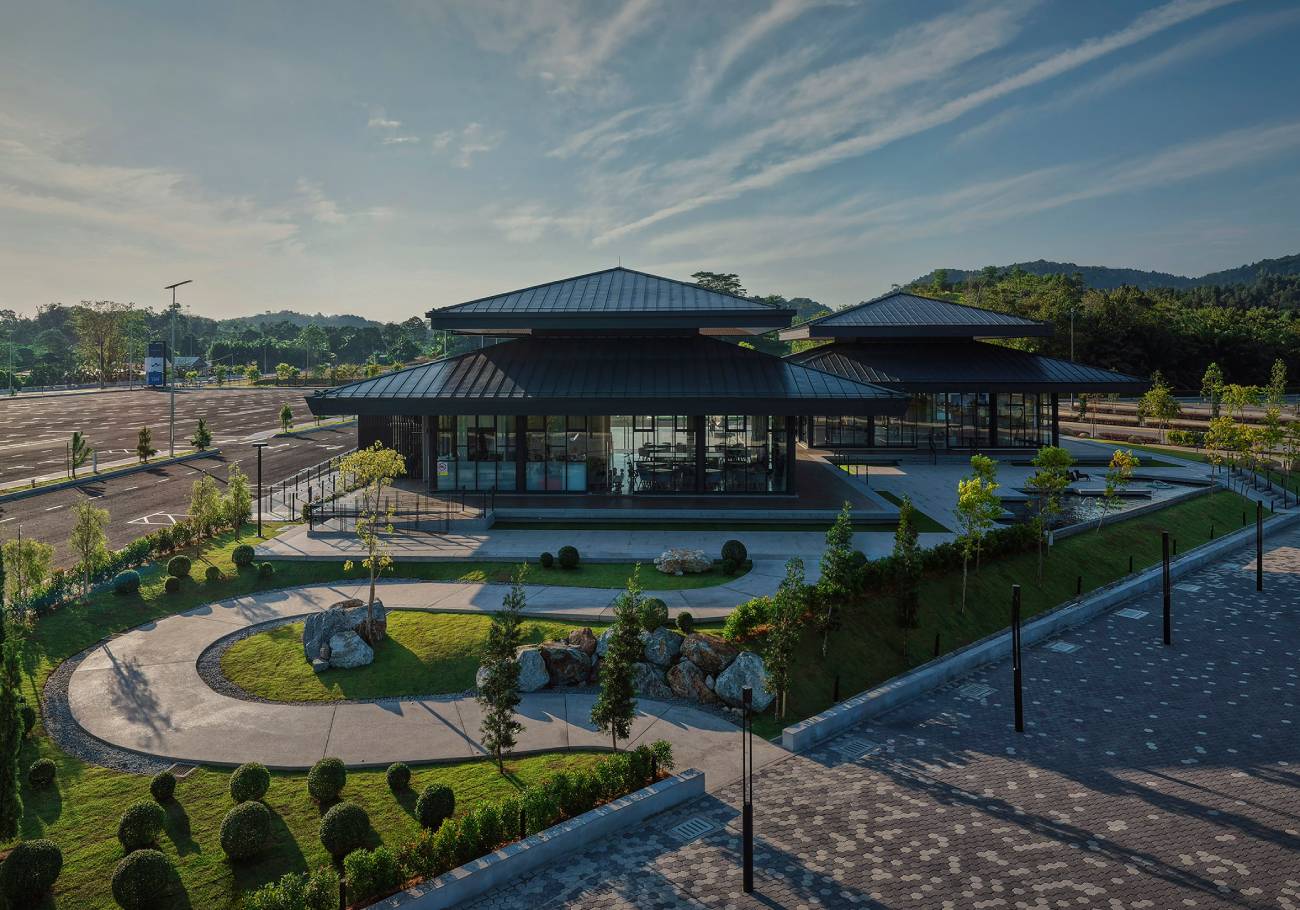A new national survey conducted by the Merdeka Center and commissioned by Projek SAMA has revealed a deep undercurrent of dissatisfaction among Malaysians over the legal treatment of former Prime Minister Najib Razak. Released on the seventh anniversary of the historic 2018 General Election that ended Barisan Nasional’s long reign, the “No Dua Darjat” (No Double Standards) survey captured views from 1,210 respondents across all 222 parliamentary constituencies.
A striking 82% of respondents believe Najib is receiving special treatment under the law. This perception gained traction after his original 12-year prison sentence was cut in half and his RM210 million fine reduced to RM50 million. Public discontent intensified further after claims emerged that Najib could serve his sentence under house arrest, an assertion linked to an alleged “addendum order” from the former King—a document the government later denied existed.

The phrase “Rumah, bukan penjara?” (A house, not a prison?) quickly became a rallying cry on social media and in public discourse, encapsulating the sense that the politically connected can escape the full weight of justice while ordinary Malaysians face far harsher consequences for lesser offences.
Support for pardon
The survey found that 57.8% of Malaysians oppose granting Najib a royal pardon, while 32.7% are in favour. However, the level of support varies significantly across ethnic, political, and geographical lines.
Among Chinese respondents, opposition to a pardon is near-total, at 95%. Among Malays, the picture is more complex, with opposition ranging from 43% to 62%, depending on question framing. Indian respondents displayed surprisingly mixed views—with up to 62.2% supporting Najib’s pardon in certain contexts—while 50.5% of Muslim Bumiputera respondents, largely from East Malaysia, were also supportive.

These findings suggest that historical economic experiences and community-level perceptions still play a role in shaping views of Najib’s legacy. Analysts believe that for some lower-income Indian and East Malaysian voters, Najib’s tenure was associated with greater perceived access to aid and recognition, contributing to softer opinions about his conviction.
Political loyalties and the urban-rural divide
Political affiliation remains a strong predictor of public sentiment. Among Pakatan Harapan supporters, nearly 90% oppose the royal pardon. For Perikatan Nasional voters, opposition ranged from 44% to 80%, while Barisan Nasional voters were more divided—with only 55% to 67.7% in favour of the pardon. In East Malaysia, support stood at 39.2% among voters aligned with regional parties such as GPS, GRS, and Warisan.
The urban-rural divide also played a significant role. Urban voters and those earning above RM4,000 per month were more likely to reject any form of leniency for Najib, whereas rural and lower-income respondents showed more openness to a pardon—often driven by loyalty, nostalgia, or perceived neglect by the current administration.
These divisions not only reflect political alignments but also point to broader issues of inequality and trust in the justice system, with many Malaysians feeling their lived realities are shaped by who they vote for and where they live.
Experts warn of eroding public trust
At a Projek SAMA dialogue, experts voiced concerns over the impact of perceived legal inequality on national integrity.
Dr. Wong Chin Huat, a political scientist and reform advocate, pointed to global precedents. “In South Korea, multiple prime ministers have been jailed. Even top leaders must not escape the law. Malaysia has shown it can do the same.”

Thomas Fann, a founding member of Projek SAMA, emphasised the gravity of public opinion in shaping Malaysia’s democratic future. “This data reflects a nation grappling with questions of justice, leadership, and accountability. It’s essential for the rule of law to be applied without fear or favour.”
Fann also addressed the robustness of the findings, “While 1,210 may seem small compared to 33 million Malaysians, the respondents were drawn from every constituency, making the survey statistically robust.”
A mirror to the nation’s conscience
As debates over Najib’s royal pardon continue to unfold, the “No Dua Darjat” survey paints a portrait of a nation at a moral and political crossroads. It is not merely a referendum on one man’s fate, but a reflection of how Malaysians perceive justice, fairness, and the future of institutional integrity.
The broad perception that the legal system favours the elite underscores a deeper crisis of confidence—one that cannot be ignored by policymakers, lawmakers, or the judiciary.












Add comment